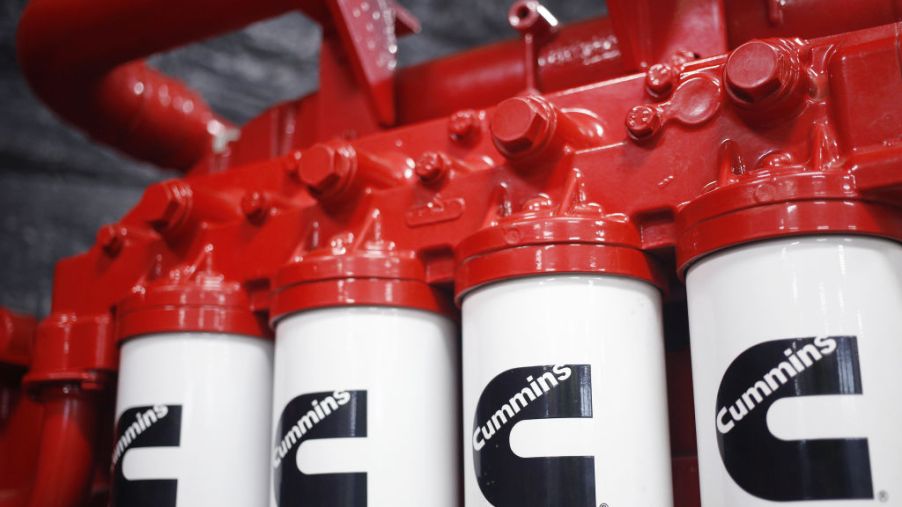
What Makes Cummins Diesel Engines so Good?
A Cummins diesel engine is recognized around the world as a superior truck engine not only because a Cummins engine will have the horsepower and torque a work truck needs to tow a hefty load, but these engines are also noted for unmatched durability. When maintained properly and not abused, a truck with a Cummins engine can expect an insanely long life-span.
The beginnings of Cummins
Cummins began manufacturing engines in 1919, at its present location and headquartered in Columbus, Indiana. It was at the age of 30 when Clessie Cummins was elected president and the operation moved into an abandoned cereal mill.
Cummins’ first, direct-injection engine design was the Model F, and from this start, the company became a leading innovator in engine technology to power a growing industrial economy. It was the use of a Cummins engine in tractors and construction equipment manufactured by Case Corporation that changed the direction of the company forever.
By 1928, the Cummins Company knew the automotive industry was the way to advance its technology and brand. In a few short years, the company had designed and manufactured what was the first iteration of today’s diesel engines. A diesel engine built specifically for the commercial trucking market. Of course, it would later find application on a host of heavy-duty, consumer pickup trucks.
Today, Cummins engines are not only used in medium and heavy-duty trucks, but also manufactured for commercial engines that serve in many industries and equipment. These range from construction, mining and drilling, agriculture, rail, and military defense systems.
What is a Cummins engine?
A Cummins Diesel Engine was an improvement on the original diesel engine technology developed by Rudolf Diesel in 1897. A diesel engine is very similar to a gasoline engine — except of course for the type of fuel used for combustion which then generates the power to drive the mechanical functions of a car (namely the drive train).
The other difference is instead of the fuel being mixed with air then compressed by pistons and ignited by sparks, a diesel engine compresses the air first, then injects the fuel. Compressed air heats up automatically, and it is this hot, compressed air that ignites the fuel for combustion.
The main difference in today’s Cummins engines would be the greater torque that is produced for the rated horsepower. Also, a Cummins engine will have distinct differences in the engine block and cylinder head construction, the compression ratio, bore, and stroke, as well as the firing order.
Cummins dominates the market
You may wonder why the Cummins engine is such a highly sought after truck engine. The 12-valve engine has a legendary reputation, born out of the engines’ ability to produce amazing power and high torque.
More important, the Cummins engine has a reputation for being tough, long-lasting, and virtually impossible to kill. This may be attributed to the fact that the engine was originally designed as a commercial-duty engine. The fact that it is used in consumer trucks means it would take a lot of continuous, hard and long abuse to stop these engines.
It was in 1989 when a Cummins Turbodiesel made its way into a Ram pickup — and the legend began. The powerful engine blew competition from Ford and GMC out of the water.
” Even though the Cummins 12-valve only cranked out 160 horsepower, with its long-stroke and undersquare design (4.02-inch bore, 4.72-inch stroke), the engine made 400 lb-ft of pavement-destroying grunt. Chevy’s 6.2-liter and Ford’s 7.3, by comparison, weren’t even making 250 and 350 lb-ft, respectively.”
Cummins began to dominate the market when it came to diesel engines for the automotive industry because of its reputation for longevity. The engine’s head and block are constructed with cast iron. The crankshaft and the connecting rods are forged steel along with massive main bearings. Instead of the timing chain or belt that is used in gasoline engines, the diesel engines use a steel time gear connected to the crank and cam.
All-in-all, the Cummins diesel engine is a beast that is not willing to die. According to Cummins, “Approximately 75% of all RAM 2500 and 3500 Heavy-Duty pickup owners choose the optional Cummins Turbo Diesel. The 2019 model year offers HD pickup buyers 1000 lb-ft of torque for the first time ever.”


